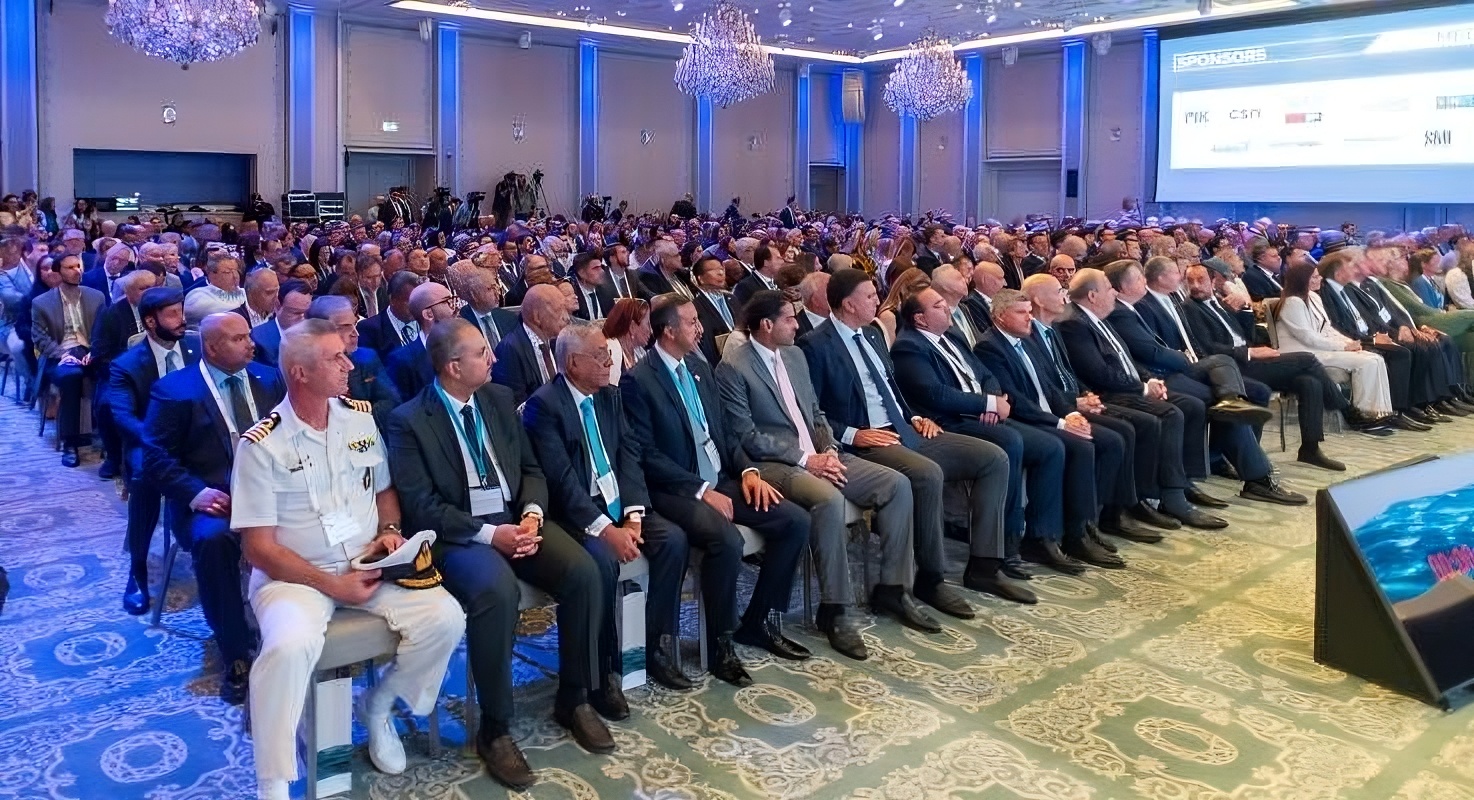Seventy-four per cent of shipping companies have already aligned or plan to align with the International Maritime Organisation’s (IMO) net-zero emissions targets, according to preliminary findings presented at the Maritime Cyprus 2025 conference.
Biofuels have emerged as the dominant choice for decarbonisation, with 62 per cent of companies adopting them as part of their transition strategy.
Meanwhile, interest in green hydrogen and ammonia is also growing, with 25 per cent and 19 per cent of respondents respectively identifying them as future alternative fuels.
The findings were presented by Michalis Ierides, secretary-general of the Cyprus Marine Environment Protection Association (CYMEPA), as part of the ongoing international five-year project Metavasea.
Ierides explained that the project aims to promote a human-centred transition for the maritime sector towards carbon reduction through education, training, and collaboration among all stakeholders.
The Metavasea programme is coordinated by the Hellenic Marine Environment Protection Association (Helmepa), with the support of the Lloyd’s Register Foundation.
It also involves key partners, such as CYMEPA, the Cyprus Marine and Maritime Institute (CMMI), the World Maritime University (WMU), the Mediterranean Information Office for Environment, Culture and Sustainable Development (MIO-ECSDE), and other organisations.
According to the survey results, the main barriers to achieving decarbonisation include high costs, ship compatibility, technological immaturity, and the complexity of the regulatory framework.
Moreover, 64 per cent of seafarers stated that they have not received any training related to decarbonisation in the past two years.
The survey also highlighted growing concern over crew fatigue, with 70 per cent of seafarers identifying it as the most serious safety issue.
From the perspective of ports and civil society, the findings revealed that despite progress, infrastructure for low-carbon fuels remains limited.
Only 20 per cent of ports currently offer refuelling services with Very Low Sulfur Fuel Oil (VLSFO), while 40 per cent plan to implement Onshore Power Systems (OPS), and another 40 per cent have yet to plan any intervention.
In addition, environmental awareness in coastal communities remains high, with 97 per cent of citizens expressing concern about the effects of climate change on their local environment.
The survey also found that public perception tends to overestimate the maritime sector’s contribution to greenhouse gas emissions, with many believing it to be significantly higher than its actual share of just 3 per cent.
Ierides said that the green transition of shipping is not only a technological issue but also primarily a human one.
“We are investing in the skills, safety, and environmental awareness of all those connected to the sea,” he said.
“The participation of citizens is crucial, as their views help us design a transition that is realistic, safe, and people-centred,” he added.
As part of the project, CYMEPA has invited all stakeholders (including seafarers, maritime professionals, port workers, students, and citizens) to participate in the online Metavasea questionnaire.
The survey takes about ten minutes to complete, is anonymous, and the results will be used to guide policy design and the development of training tools within the programme.
The questionnaire is available at www.cymepa.org.cy/el/metavasea.
“With everyone’s participation, Cyprus can become a model of sustainable and innovative shipping in the Eastern Mediterranean, actively contributing to the global effort to reduce emissions and protect the marine environment,” the announcement concluded.






Click here to change your cookie preferences